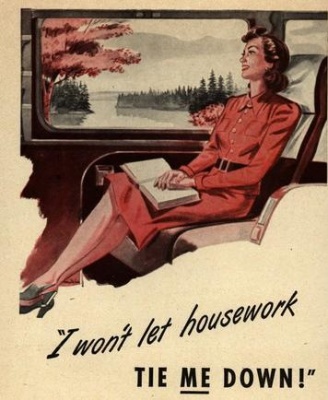The Feminine
Cross Street Studios, Auckland
12/12/2007 - 15/12/2007
Production Details
Writer: Thomas Sainsbury
The Feminine, a speculative drama, is the story of a new world order. When Adam Cooper, an English Teacher at a prestigious girl’s school, is diagnosed with testicular cancer he thinks his life is over. A new treatment, however, gives him hope and he willingly undergoes it. But there are complications.
In fifteen years he wakes from a coma.
In fifteen years the world has changed dramatically.
In fifteen years Adam’s masculinity will have him hiding for his life.
8pm December 12th – 15th, Cross Street Studios, 27 Cross Street (Off Upper Queen Street/Behind K’ Road), $10, doorsales only.
Performed by Glen Pickering, Beth Allen, Todd Emerson, Nisha Madhan, Christabel Smith
Theatre ,
Sainsbury: fast becoming a classic playwright of his generation
Review by Nik Smythe 13th Dec 2007
The black & white set, mostly straight lines save for the sveltely curved chairs, evokes a level of class that far outweighs the obviously meagre budget. Lines of tape on the floor represent walls, halls and pathways. There is no lighting board or technical sound design. Like Sainsbury’s previous work The Mall, in the same arena, The Feminine is pure theatre, relying entirely on its script and live performers to enthral its patrons.
Glen Pickering is schoolteacher Adam Cooper, a rare profession for a man in this day and age. His fiancé Naomi Campion (Nisha Madhan) is an ambitious politician, preoccupied with her election campaign but still loving and attentive to her partner’s plight when he learns he has testicular cancer. Whilst undergoing the new revolutionary ‘hibernation therapy’ complications arise, and when Adam finally reawakens the world has changed radically, against his favour.
In this futuristic ballad, created in response to what he believes is ‘a current crisis of masculinity’, Thomas Sainsbury has again proven his ability to write engaging and often humorous dialogue. The future in question is politically absurdist; in a scant fifteen years society has turned entirely on it’s head, war has ended and pollution is no more. All thanks to the blanket oppression of human males, who have been rounded up into concentration camps and brainwashed.
Pickering’s Adam makes for an ironic protagonist – a genuine, gentle, intellectual fellow facing a society which believes all men are ignorant sex crazed baboons. His character is quietly nervous against Madhan’s post feminist feisty go-getter Naomi, and while the performances merge well the relationship between Adam and Naomi seems confused.
Naomi says she loves Adam, and has even spared his life to prove it, yet she keeps him in isolation and barely communicates with him. She stands by the system which oppresses her fiancé, and with occasional moments of exception is cold and calculating, as most women of the time appear to be. Women have righted the world from the wrongs perpetrated by males, at the ultimate expense of their own femininity and vulnerability.
Both Beth Allen and Christabel Smith show real versatility and depth in their variant supporting female roles as Cecelia the flirt, a blokeish cabbie and a gruff prison guard (Smith); Jenny the psycho nurse and a grouchy security guard (Allen). Todd Emerson’s Daniel Parker is likeable and laughable as the present-day fresh faced rookie doctor who reappears in the future a rather different man, having experienced all that Adam has slept through and subsequently learned about.
Each scene tends to segue into the next with no lighting or sound cues, which is mostly effective while presenting little problems such as in the scene where Jenny is left locked in the room on stage and Adam escapes off stage. Jenny was not in the next scene so had to exit, breaking the illusion of her captivity which raised a chuckle in the audience.
The main premise is implausible in realistic terms, so what’s the real message here? Is this gender-reversed medieval future world a darkly comic exaggeration of a possible worst case scenario? Or is this just pure entertainment? The Two Ronnies’ ‘The Worm That Turned‘ springs to mind. Another angle might be that the bold claims of world peace and environmental harmony are merely Brave New World type lies, but there is no reference even to the possibility of this in the text.
The story is in various ways a thought-provoking adventure but in the last several scenes the play loses momentum, concluding not with a bang, but rather a kind of defeated whimper. Again I wonder, is this classic futuristic bleak cynicism, or was the author actually a bit stuck for a more stimulating climax?
Reading Mr Sainsbury’s notes on the scant programme it’s clear he wants us to wonder about things: ‘A cautionary tale? Or a flight of fancy? Dystopia? Or Utopia? You decide.’ Although The Feminine wants further development, I can see Thomas Sainsbury fast becoming a classic playwright of his generation, and a probable future contender for the honours discussed in the forum on this site entitled "Unpublished ‘classics’ of the NZ stage."
Copyright © in the review belongs to the reviewer





Comments